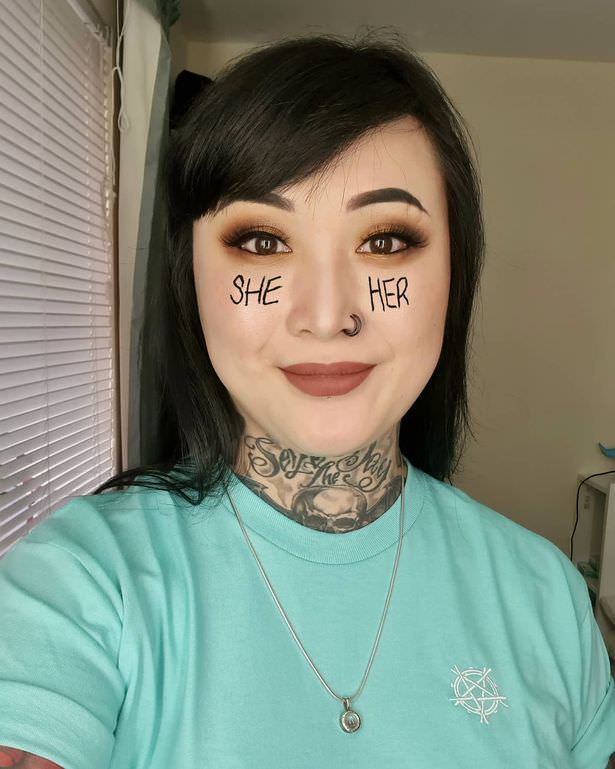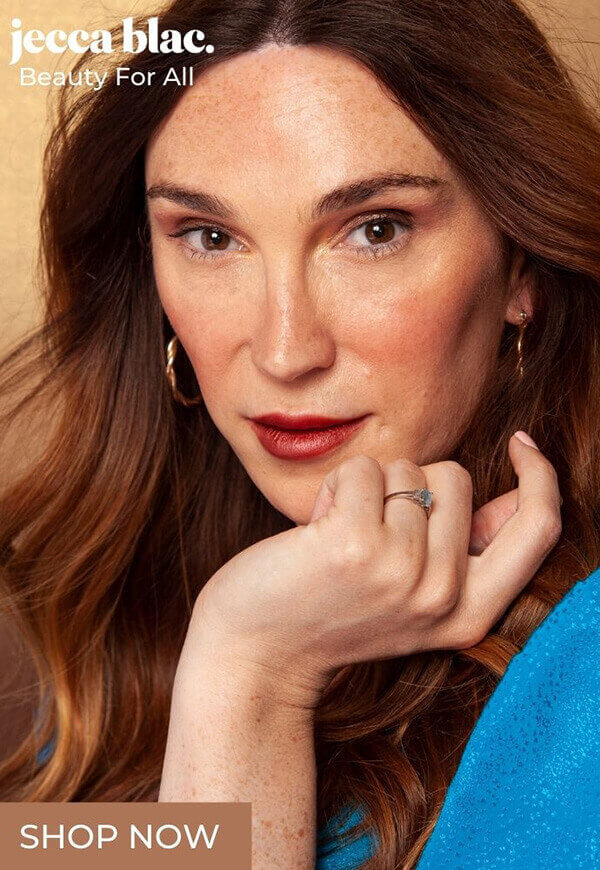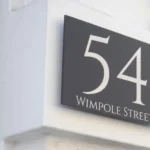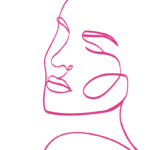Evolving attitudes to evolve activism

My name’s Eva Echo and I’m a trans activist. That’s something I never thought I’d say. I never set out to be one. But hang on, what is an activist? What do you think of when you hear that word? Let me guess: angry people holding placards, shouting and chanting? Somebody facing off against the police? Am I close?! Is that really what an activist is or (just like how there’s no one way to be transgender) is that simply one side presented by the media? When I first came out, I just wanted to find a way to externalise my thoughts. To make sense of all the years of inner conflict, along with the decline in my mental health. I was no longer afraid, so started to openly talk about everything. I hoped to share my story in a very honest way so that those who knew me could understand me. Once they did, I had hoped to get on with my life – after all, I had great people around me, a job I enjoyed, plus I was writing and playing music I loved. Apart from the gender dysphoria and prospect of transitioning (both socially and medically), I was in a good place…so why else would I change that? But here’s the thing: the more I learned about myself and what it is to be transgender, the more I realised the enormity of my struggles. Our struggles. Struggles which affect all gender diverse people. I’m not the sort of person who can sit there whilst bad things happen to good people, so I decided to speak up more. Back then, I didn’t really know how to do this properly…to be honest, some would argue I still don’t know!! But does anyone though? There’s more than one way to be passionate about a cause, just like there’s more than one way to be trans.
During LGBTQ+ History Month, we remember those that fought hard so we can enjoy the freedoms we have today. We celebrate diversity, using the opportunity to educate so that we, in turn, can create a better future. Reading about LGBTQ+ history is a real eye opener. What they went through and what they suffered, just to have basic rights. I can’t even begin to imagine what pioneers like Martha P. Johnson or Michael Dillon had to endure before they saw change. Even learning about how Section 28 segregated the LGBTQ+ community here in the UK brought up accounts of violence and hate, which have left deep wounds even to this day, despite its subsequent repeal. People may see certain actions as a bit extreme or even violent but put yourself in their shoes: years of oppression, violence, not being treated as human…it takes its toll. When you’re passionate about something, of course you want to get involved. It’s only natural, right? This is especially true when you belong to marginalised groups which others consider an easy target. We all have a right to exist. We all have a right to be treated as equals but unfortunately that isn’t the case – and it’s not through our own doing. The cisgender hetero default by which we’re all measured against by its subscribers are the ones that decide whether we can exist or not. Tension, anger and resentment are not ingredients which can stay in a pressure cooker forever.
Back then, coordinating protests and meeting up in groups was dangerous due to the regular raids on establishments. But they had no choice. They didn’t have the luxury of technology. The ongoing global pandemic has shown us that we do have alternatives for when we can’t physically meet to strategise, discuss or even support one another. We’ve even been able to hold Pride events online instead. Even though we weren’t in person, shoulder to shoulder, we were still together in a safe and accepting environment. We were still connected and the same goes for how we discuss our struggles with each other. No, it’s not ideal but what choice do we have? Personally, I think it’s been a good thing as it’s allowed us to connect with people from all over the world. It’s allowed us to organise ourselves in a much smarter way, using information to help educate others. Our social media posts are our banners. Our captions are our voices. It really is a privilege, if I’m being completely honest. We’re so lucky to have platforms which allow our messages to be shared instantly across the world, hitting a much larger audience than any local group ever could. Okay yeah, it’s not the same as a physical protest. We don’t have the energy or the strength and passion of those around us to help lift each other. But it’s not forever. As and when the global pandemic eases, I can’t wait for physical protests or demonstrations to resume – after all it’s our right to peaceful protest. We must learn from this experience in lockdown and know that our ability to adapt only strengthens us further. We’ve levelled up.
I honestly cannot even pinpoint when I became an activist or even started to use that word. More than likely, I was doing it anyway – after all you don’t need the title to be one. The more I realised there was so much work to do before we could have equality, the more I rolled up my sleeves. I wanted to get involved. I didn’t have to. I chose to. Before I came out, I looked up to icons such as Jake Graf, Carmen Carrera and Paris Lees who, in my opinion, were so important for trans visibility. Their inspiration was bound to rub off on me. But I was a bit naive back then, thinking only the well-known trailblazers were activists. Only those in the public eye or writing articles were able to actively change the world for us. How wrong I was. Every single person in the gender diverse community is an activist. They are actively advocating for who we are by existing – the simplest form of activism. The same can be said for allies too. Those who stand and fight alongside us for equality are all activists too. It’s important to remember that change does not have to be on a global scale. It doesn’t need media coverage or to be immortalised in the history books. There’s only one so much one person can do. But if we, as individuals, can create change in our own community and within our peer groups, then that will have a knock-on effect. We will see change as it cascades.
It’s important to realise that we can’t force people to see our way of thinking. We can’t force people to accept us. If we did, we’d be no different to the person who is forcing transphobic, homophobic or even racist rhetoric down our throats. We’d simply be creating more enemies. Look at Extinction Rebellion. They had a very valid message. One that we all need to take on board and consider for the sake of our future. However, the way they went about sharing that message alienated so many people. Bringing cities to its knees for days and disrupting lives meant their actions spoke much louder, so people stopped listening. That’s exactly why we need patience, as a marginalised group. We need to be careful with how we interact with others – and that applies to how we interact with allies too. We need to take the time to educate in our own ways. Though I acknowledge it’s not ideal that we need to do this, it’s something we should do, so that future generations don’t have to.
As a trans person, having somebody point and laugh at you in public whilst you’re going about your own business is devastating. You just want the ground to open up and swallow you right there and then. I used to come away playing the moment over and over. Could I have dealt with it better? What could I have done to change that person’s opinion of me? Truth is, I couldn’t. We can’t educate unless they’re willing to accept change. What I can change is myself. And that’s what I did. I changed my attitude. Activism can be internalised too. Yes, they may have laughed at me. Yes, they may look down on trans people or anybody else that’s different to what they know and yes, it hurts. Most likely, they’ll go away and tell their friends about what they saw. But are you ready for the plot twist? In talking about us, by making fun of us in front of their friends, they’re talking about trans people. Okay, not in a good way…but our existence has made it into their conversation. Even if they don’t look on trans people favourably yet, they know that trans people exist. Whether they laugh at us makes no difference to our existence (spoiler alert for them: gender diverse people have existed for centuries and have been well documented throughout history) because just by being who we are and being visible, we’ve infiltrated their cis hetero dominated world. Multiply this over and over again, and they stop talking about us. We are old news. Normalised. Accepted.
So yeah, I am an activist. And proud one, at that. What about you?
Follow Eva Echo on Instagram @evaech0!








